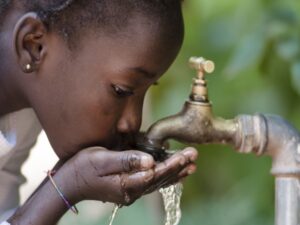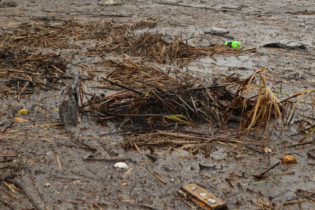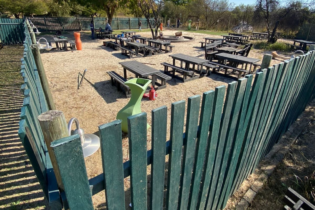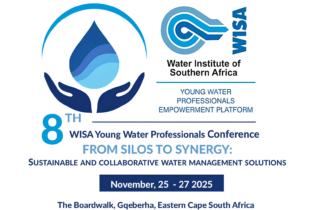The Energy and Water Sector Education Training Authority (EWSETA) is a skills development authority that builds capabilities within the industry. Kirsten Kelly talks to Mpho Mookapele, the CEO of EWSETA about skills development planning and implementation.
 Mpho Mookapele, the CEO of EWSETA
Over the past three years, EWSETA has evolved from being predominantly transactional, focusing on distributing grant funding to eligible businesses and institutions, to embracing a more strategic operational model. “We were designed to be an authority on skills development within the energy and water sector, and not merely project manage skills development programmes. This entails understanding the skills needed within the energy and water sector, because if irrelevant skills are identified, funding will be directed towards the wrong programmes – developing skills that the energy and water sector do not need,” states Mookapele.
Determining skills demand
Organisations and companies within the energy and water sector who pay their skills levies to SARS, are required to submit an annual Workplace Skills Plan (WSP) to EWSETA where they identify critical, future and hard-to-find skills that are aligned to their strategies. This is meant to inform critical sector skills that are needed for the country.
“However, many companies treat the WSP as a compliance process. I have sat with some CEOs where the top skills listed in their submitted WSP are not aligned to the top skills actually needed by that company. Skills development and training is often seen as a corporate social investment initiative. It is seldom used as a strategic tool to build capabilities for the country, let alone an organisation’s future needs,” explains Mookapele.
EWSETA uses WSPs to develop an annual Sector Skills Plan but has also formed important partnerships with other entities to ensure that the correct skills needed for the water industry are identified. “Entities like US AID, United Nations Development Plan (UNDP), the British Council as well as a few banks are now providing funding as well as training programmes for the sector. While we have largely created close partnerships with key stakeholders in the energy sector, EWSETA is now focussed on bringing together people who are involved in skills planning and development in the water sector. All stakeholders need to work towards one goal in order to create a more rapid and bigger impact,” says Mookapele.
Education and training
Development of skills requires a relevant and flexible qualification offering that is agile to adapt to the rapidly changing world of work.
Partnerships are vital to the success of any SETA. Qualifications need to be developed with input between industry players, universities and TVET colleges. If companies are not involved in determining the content of various curriculums, graduates become unemployable due to an irrelevant skill set.
Mpho Mookapele, the CEO of EWSETA
Over the past three years, EWSETA has evolved from being predominantly transactional, focusing on distributing grant funding to eligible businesses and institutions, to embracing a more strategic operational model. “We were designed to be an authority on skills development within the energy and water sector, and not merely project manage skills development programmes. This entails understanding the skills needed within the energy and water sector, because if irrelevant skills are identified, funding will be directed towards the wrong programmes – developing skills that the energy and water sector do not need,” states Mookapele.
Determining skills demand
Organisations and companies within the energy and water sector who pay their skills levies to SARS, are required to submit an annual Workplace Skills Plan (WSP) to EWSETA where they identify critical, future and hard-to-find skills that are aligned to their strategies. This is meant to inform critical sector skills that are needed for the country.
“However, many companies treat the WSP as a compliance process. I have sat with some CEOs where the top skills listed in their submitted WSP are not aligned to the top skills actually needed by that company. Skills development and training is often seen as a corporate social investment initiative. It is seldom used as a strategic tool to build capabilities for the country, let alone an organisation’s future needs,” explains Mookapele.
EWSETA uses WSPs to develop an annual Sector Skills Plan but has also formed important partnerships with other entities to ensure that the correct skills needed for the water industry are identified. “Entities like US AID, United Nations Development Plan (UNDP), the British Council as well as a few banks are now providing funding as well as training programmes for the sector. While we have largely created close partnerships with key stakeholders in the energy sector, EWSETA is now focussed on bringing together people who are involved in skills planning and development in the water sector. All stakeholders need to work towards one goal in order to create a more rapid and bigger impact,” says Mookapele.
Education and training
Development of skills requires a relevant and flexible qualification offering that is agile to adapt to the rapidly changing world of work.
Partnerships are vital to the success of any SETA. Qualifications need to be developed with input between industry players, universities and TVET colleges. If companies are not involved in determining the content of various curriculums, graduates become unemployable due to an irrelevant skill set. “Generally, post school education and training (PSET) institutions are not adequately advocating for water and sanitation related qualifications. School students are not aware of water related career paths and therefore careers in these industries are not seen as attractive or are not even known.” states Mookapele.
A number of factors contribute to careers in the water sector not being sought after by school leavers. In addition to the above-mentioned reason, most of the jobs in the water and sanitation reside in government institutions and there is a strong perception within the general public that many of these institutions are dysfunctional. The water sector needs to collectively work together in order to attract high performers in building a capable cohort to serve these critical industries. A key element of skills development is exposing students to practical learnings in the world of work. This requires industry to open its doors for young people to be placed in companies to learn from training officers who have relevant knowledge and experience. The availability of fully functional institutions in the water sector is limited. Many students are placed in a municipality to complete their practical training. This has proven to be a big challenge as students cannot be placed in municipalities where there is inadequate infrastructure and limited qualified and experienced personnel as highlighted by the recently released No Drop Report. Students placed in the workplace are often viewed as a burden to a company, as they require a certain level of guidance by a supervisor. This can be demanding for supervisors as it is an added responsibility to normal day to day work. This approach again reflects how skills development is not seen as a strategy for human capital development. Skills development in not a charitable act but an investment for water and sanitation sector. Companies that offer practical learning can identify the best students and employ them whilst building a talent pool for the country,” states Mookapele. Municipalities Currently, EWSETA is engaging with municipal managers, and looking at ways to assist them in listing the requisite skills needed to implement their plans to improve their blue drop and no drop status. EWSETA is also working with a number of SETAS as there are sometimes overlapping priorities and programmes. The Local Government SETA (LGSETA) focuses on the municipalities. The partnership between LGSETA and EWSETA is critical and will ensure elimination of duplication as water boards (falling under EWSETA) and municipalities (falling under LGSETA) often require the same skills. Leadership skills “Justifiably, there is a great focus on building technical and artisanal capabilities. However, skills in water planning, financing, problem solving, critical thinking, risk management, partnership development, legislation, climate change and ESG are often lacking. This is usually the cause for the slow implementation of existing water plans, policy and regulations. Consultants are then used instead of making efforts to build in-house skills,” says Mookapele. EWSETA has launched a number of executive management programmes for energy and water professionals together with Wits Business School and Duke Corporate Education. The organisation has also flagged continuous professional development as a focus, where professionals are updated with changes in their professions. The aim is to develop learning and career pathways that assist water professionals in acquiring the skills and experiences necessary to advance within a chosen career field. She adds that water skills are often imported, which is a missed opportunity in a country with a high unemployment rate. “There is nothing wrong with importing skills to learn, but we cannot fully rely on imported skills to run the local water sector. We need to train and capacitate South Africans to ensure that it is South African companies that run their own water industry.” Mookapele highlights that water and sanitation has been relegated to a social enterprise rather than a business and that is the reason why skills development is seldom prioritised. Despite funding availability from both the skills development levy and donor funding, the sector struggles to allocate these resources effectively and see impact due to fragmentation of skills development. “While we have a National Water and Sanitation Master Plan, I do not believe that every sphere of government is working towards one plan, there is a lot of fragmentation where there needs to be more strategic direction. I have seen a fundamental shift in the energy sector from viewing skills development as only encompassing bursaries and internships that need SETA funding to something that strategically builds capabilities that can grow and nurture that sector. I am hoping to partner with the water sector so we can see a similar shift.”






